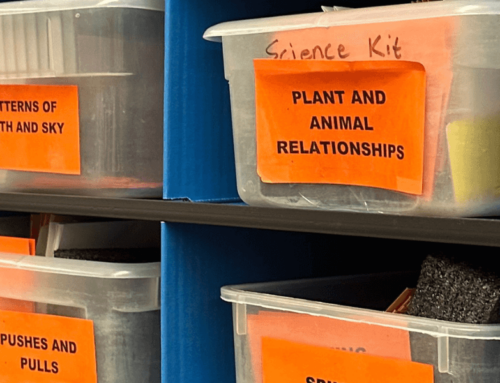You are not going to believe what I discovered during my adventures across the Northwest Educational Service District 189 (NWESD) region this winter! While chatting with a district staff member, I learned about a unique educational program that exists in several NWESD school districts called the Title 1, Part C Migrant Education Program. I learned that this program is a supplemental and federally funded educational program available to any school district with ten or more identified migrant students enrolled. The staff member shared with me that even small districts can qualify for up to $35,000.00 to provide additional services to support the unique needs of migrant student/families in their school districts. Districts must meet qualifications and submit an application to OSPI.
During my conversation, I also learned that there is an incredible Migrant Education Program team at the NWESD who work directly with school districts and are ready and available to offer their support. They are an invaluable resource to school districts who have Title 1, Part C Migrant Education programs.
As I continued to chat with the district staff member, the word “migrant” caught my attention, and I asked if the term “migrant” referred to undocumented students or if it is at all connected with what is happening at the U.S. and Mexican border?
What I learned is that there is a lot of confusion and misuse of the term “migrant.” In education, the term “migrant” has nothing to do with immigration status at all. Rather, the term “migrant” refers to students who move with their family/guardians and cross district boundary lines. Students are qualified upon arrival to the district, based on their parent/guardian engagement with agricultural work anytime within the last three years. Families have jobs like picking strawberries, planting/picking tulips, fishing, processing poultry/potatoes to name a few examples. It made me realize that qualifying to be in the program can be intense. The district staff member said, “This is why we invested in a champion to identify and recruit migrant students and families.”
I was highly interested to hear about the district’s supplemental program services that the Migrant Education Program provides to students. The staff member mentioned that it depends on several factors and funding varies per district. Each district usually completes a needs assessment with staff and migrant families to identify the needs in their district.
Currently, the following Academic and Non-Academic Supplemental Services are available:
Non- Academic Supplemental Program Services
- Career Education and Postsecondary Preparation
- Educational Supplies
- Health
- Dental
- Non-Instructional Support
- Student Leadership/Engagement
- Transportation
- Hygiene Supplies
Academic Supplemental Program Services:
- English Language Arts
- Credit Accrual
- Math
- Early Childhood Learning
- Out–of–School Youth Services
The Title 1, Part C Migrant Education Program, is an amazing program that continues to provide extra support to districts for migrant students to meet their life, career, and educational goals.
To learn more about the NWESD Migrant Education Program visit:
The NWESD Migrant Program website
The OSPI Migrant Education website
Or contact:
Enrique Lopez, NWESD Regional Migrant Coordinator
elopez@nwesd.org | 360-299-4048
Tanya Rojas, NWESD Migrant OSY/Health Services Coordinator
Trojas@nwesd.org | 360-299-4719
Clint Weckerly, NWESD Migrant Academic Coordinator
Cweckerly@nwesd.org | 360-299-4047




